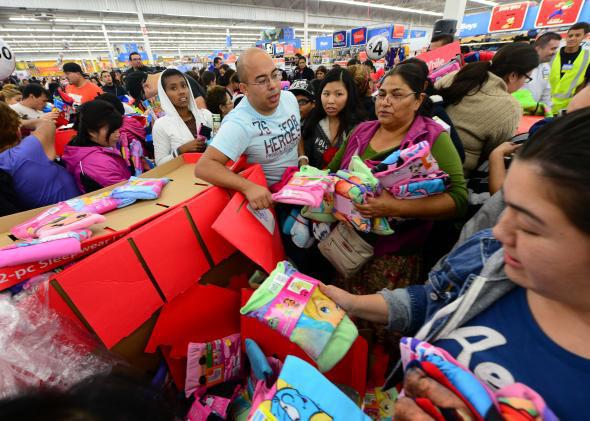This article originally appeared in Inc.
If you’re reading this while camped out in a Best Buy parking lot waiting for the store to open on Nov. 28 at 6 a.m., Black Friday is still alive and well in your heart.
But for most of us, Black Friday is suffering a rapid and precipitous decline. It’s as if Superman accidentally put on Kryptonite underwear. First, he can’t fly, then he can’t leap, then he can’t even lift himself off the floor.
Just a few years ago, Black Friday was the most powerful force in marketing, representing:
- The opening bell of holiday shopping, eliciting a “ready, set, go” reaction from consumers.
- The biggest retail sales day of the year.
- A much-discussed cultural phenomenon. Some loved Black Friday, some hated it, but we all talked about it.
But Black Friday is showing signs of weakness. A case in point: Retail analyst ShopperTrak predicts that Black Friday will fall to No. 3 in sales, after the Saturday before Christmas (December 20) and the day after Christmas.
What’s Black Friday’s malady? A deadly disease called “semantic satiation.” This is an actual psychological phenomenon (Don’t you love social scientists?) that works like this: When a word or phrase is used to the point of oversaturation, it loses meaning and eventually is perceived as jibberish.
When Black Friday described something specific—the day after Thanksgiving when you risked being trampled to score that 50-inch TV—it had marketing superpowers. But now that it’s being used to refer to every sale from Oct. 1 through New Year’s Day, Black Friday is becoming noise, not a compelling call to action.
If you’re in the retail business, this matters because “Black Friday” will become less and less effective as a term that lures shoppers.
If you’re not in retail, you should also care. There are many terms that are effective for a while but quickly become overused to the point of meaning nothing. (Paradigm, I’m looking at you.)
While it’s difficult to resist the temptation to jump on the bandwagon, the way you get attention is by sounding different than everyone else.
For example, here’s Walmart’s U.S. chief merchant, Duncan MacNaughton: “It used to be called Black Friday, then it became Thursday, now it’s a week long. Maybe we should just call it November.”
Black Friday, RIP.
